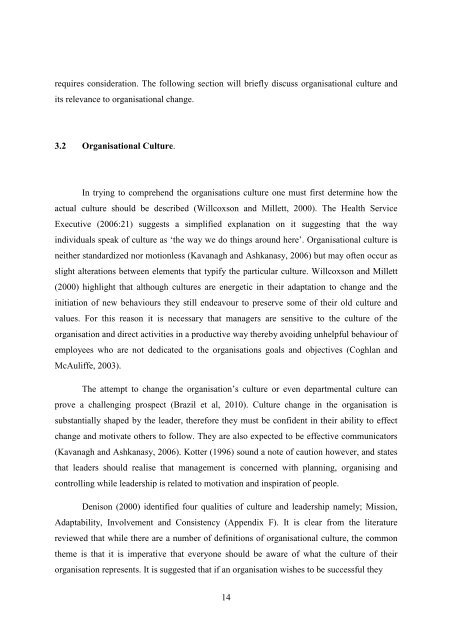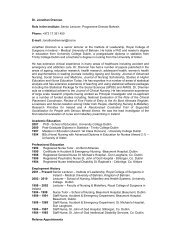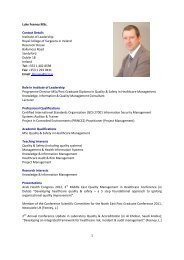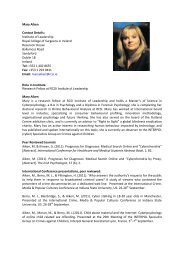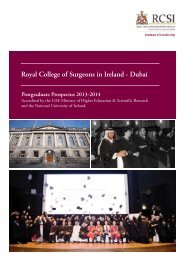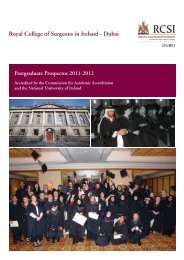Improving the Assessment and Triage of Patients with Mental Illness ...
Improving the Assessment and Triage of Patients with Mental Illness ...
Improving the Assessment and Triage of Patients with Mental Illness ...
You also want an ePaper? Increase the reach of your titles
YUMPU automatically turns print PDFs into web optimized ePapers that Google loves.
equires consideration. The following section will briefly discuss organisational culture <strong>and</strong><br />
its relevance to organisational change.<br />
3.2 Organisational Culture.<br />
In trying to comprehend <strong>the</strong> organisations culture one must first determine how <strong>the</strong><br />
actual culture should be described (Willcoxson <strong>and</strong> Millett, 2000). The Health Service<br />
Executive (2006:21) suggests a simplified explanation on it suggesting that <strong>the</strong> way<br />
individuals speak <strong>of</strong> culture as ‘<strong>the</strong> way we do things around here’. Organisational culture is<br />
nei<strong>the</strong>r st<strong>and</strong>ardized nor motionless (Kavanagh <strong>and</strong> Ashkanasy, 2006) but may <strong>of</strong>ten occur as<br />
slight alterations between elements that typify <strong>the</strong> particular culture. Willcoxson <strong>and</strong> Millett<br />
(2000) highlight that although cultures are energetic in <strong>the</strong>ir adaptation to change <strong>and</strong> <strong>the</strong><br />
initiation <strong>of</strong> new behaviours <strong>the</strong>y still endeavour to preserve some <strong>of</strong> <strong>the</strong>ir old culture <strong>and</strong><br />
values. For this reason it is necessary that managers are sensitive to <strong>the</strong> culture <strong>of</strong> <strong>the</strong><br />
organisation <strong>and</strong> direct activities in a productive way <strong>the</strong>reby avoiding unhelpful behaviour <strong>of</strong><br />
employees who are not dedicated to <strong>the</strong> organisations goals <strong>and</strong> objectives (Coghlan <strong>and</strong><br />
McAuliffe, 2003).<br />
The attempt to change <strong>the</strong> organisation’s culture or even departmental culture can<br />
prove a challenging prospect (Brazil et al, 2010). Culture change in <strong>the</strong> organisation is<br />
substantially shaped by <strong>the</strong> leader, <strong>the</strong>refore <strong>the</strong>y must be confident in <strong>the</strong>ir ability to effect<br />
change <strong>and</strong> motivate o<strong>the</strong>rs to follow. They are also expected to be effective communicators<br />
(Kavanagh <strong>and</strong> Ashkanasy, 2006). Kotter (1996) sound a note <strong>of</strong> caution however, <strong>and</strong> states<br />
that leaders should realise that management is concerned <strong>with</strong> planning, organising <strong>and</strong><br />
controlling while leadership is related to motivation <strong>and</strong> inspiration <strong>of</strong> people.<br />
Denison (2000) identified four qualities <strong>of</strong> culture <strong>and</strong> leadership namely; Mission,<br />
Adaptability, Involvement <strong>and</strong> Consistency (Appendix F). It is clear from <strong>the</strong> literature<br />
reviewed that while <strong>the</strong>re are a number <strong>of</strong> definitions <strong>of</strong> organisational culture, <strong>the</strong> common<br />
<strong>the</strong>me is that it is imperative that everyone should be aware <strong>of</strong> what <strong>the</strong> culture <strong>of</strong> <strong>the</strong>ir<br />
organisation represents. It is suggested that if an organisation wishes to be successful <strong>the</strong>y<br />
14


